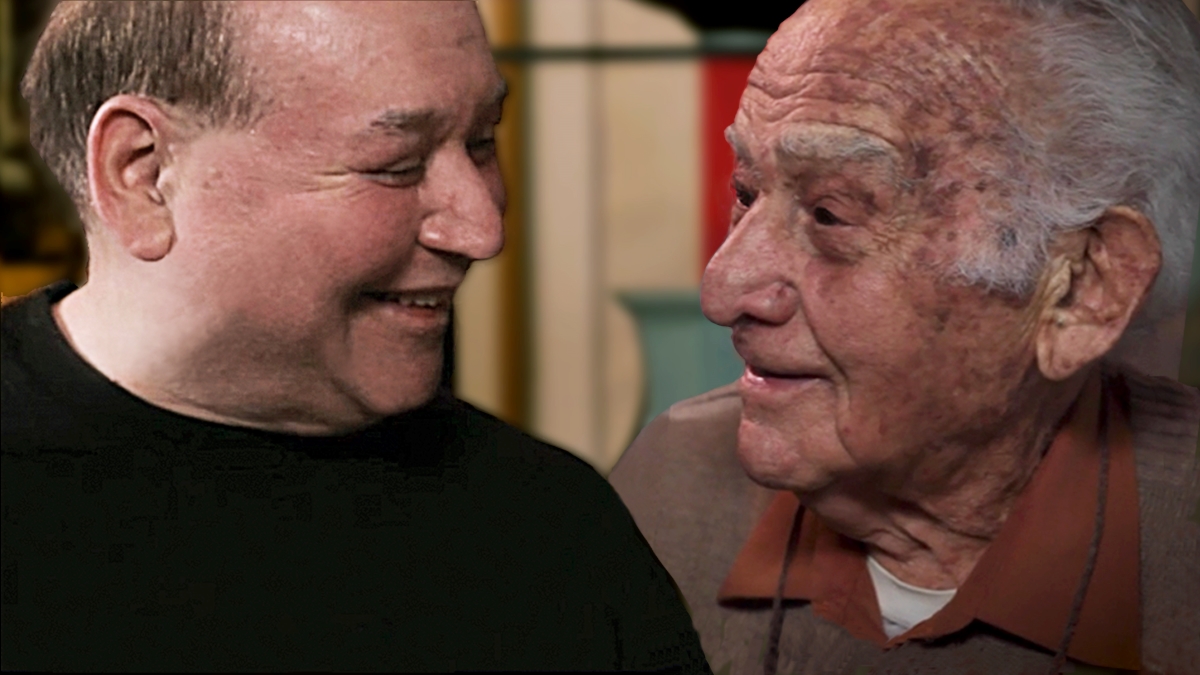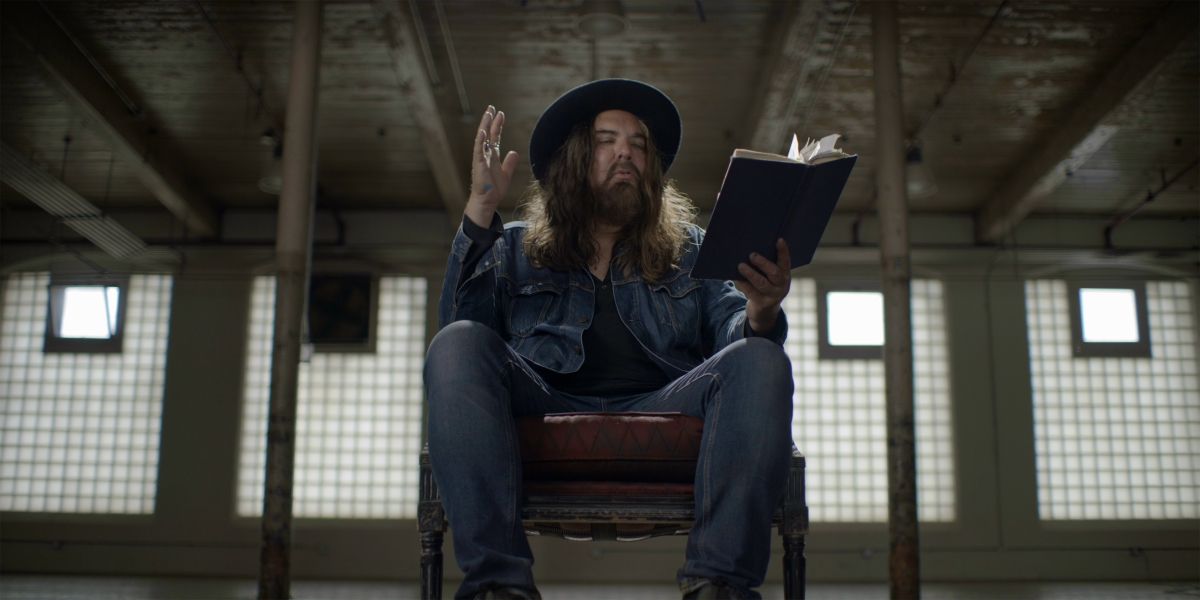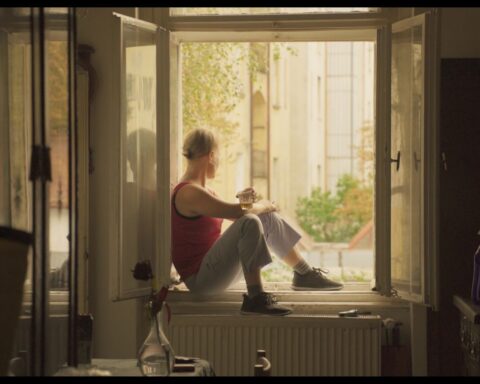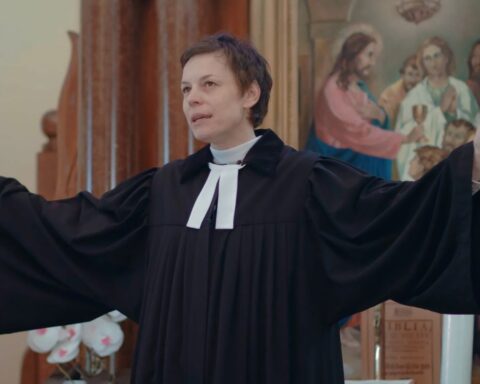The Rhapsody
(Canada, 105 min.)
Dir. David Hoffert
As we get further away from the liberation of the Nazi concentration camps in Europe and the danger of misinformation and history deniers grows, it’s more important than ever to record the stories and voices of those who survived. So when a musical composition entitled ‘Rhapsody 1939-1945’ was discovered alongside a wartime diary, both by Leo Spellman, a Polish Canadian Holocaust survivor, it became of utmost importance to share both with the world.
Born in Ostrowiec, Poland in 1913 to a family of musicians (including first cousin Wladyslaw Szpilman, subject of The Pianist), Spellman was an accomplished piano player and composer until the Nazis invaded in 1939. Through his wits, the kindness of others, and sheer luck, Spellman was able to evade the Nazis throughout the war, saving his sister, wife, and brother-in-law as well.
During the Holocaust, Spellman kept an account of his journey of survival in a diary. Detailing every near-death experience, including hiding behind the wall of an apartment that was occupied by Nazi soldiers for three days, his diary was only discovered after his passing in 2012. Considered by the U.S. Holocaust Memorial Museum to be one of the most important documents of its kind, the first-hand retelling of Spellman’s bid for survival is harrowing, raw, and intimate.
The diary unfolds brilliantly in The Rhapsody. Narrated by Stephen Fry, we’re taken on Spellman’s journey. His stories come to life through reenactments and beautiful hand-painted images, animated to give an almost 3D quality. At times, the re-creations threaten to be overly dramatic — the acted-out scenes and the aggressive sound choices feel unnecessary and distracting. Given the inherently serious and gripping nature of the events story being told, director David Hoffert could have opted for a more sombre retelling, which would have enhanced the terrors being shown.
The main crux of The Rhapsody is in Spellman’s composition. After the war, he told the story of Holocaust the way he thought it could: through music. His piece takes listeners through the anxiety of Nazi occupation, the horrors of the concentration camps, and the jubilation and relief of liberation.
The manuscript of his concerto was placed in a trunk upon Spellman’s emigration to Canada and remained there for over 50 years. The Rhapsody takes us through its discovery and premiere performance at Toronto’s Ashkenaz Festival in 2012 where Spellman and his sister Chana were thankfully in attendance. To see such a significant time come to life through a medium so close to Spellman’s heart and that of his family is incredibly moving, and to know that he was able to hear his piece played so many years later is immensely gratifying.
Hoffert interviewed many of Spellman’s family members, all of whom expressed the same sentiment: Spellman never wanted to talk about the war. Through his music and diary, his children and grandchildren re-discovered the patriarch of their family. Towards the end of the film, Spellman’s daughter and some of his grandchildren travel to Ostrowiec for the first time. They meet the son of Henryk Wronski, a young Polish student during the war who hid Spellman and his family from the Nazis. Similar to Spellman, Wronski spoke little about the war and his involvement; he is a quiet hero who saved the lives of a few, which granted the lives to many others, a fact not lost on Spellman’s daughter.
On a macro-level, The Rhapsody is a testament to the many wartime stories that have been unsaid. And on a smaller scale, the film serves as an intimate portrayal of the many families who didn’t quite understand their fathers and mothers who survived such devastating atrocities. The vast majority of survivors will never get to tell their story in the way Leo Spellman did, but by giving voice to his, Hoffert and Spellman’s family honour the spirit of those who survived and the lives lost.
The Rhapsody premieres at the Toronto Jewish Film Festival on June 15.












